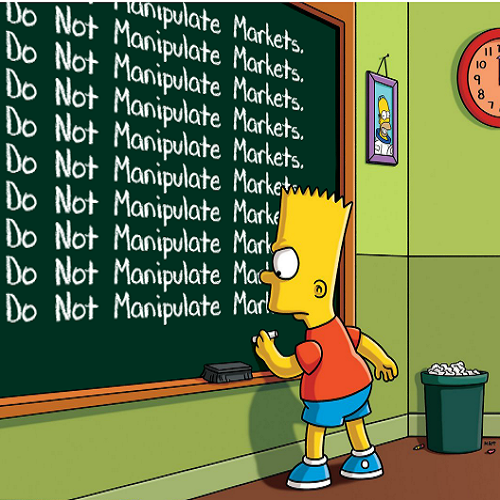The Federal Reserve has announced a sweeping set of strict rules to prohibit its employees from owning individual stocks, holding investments in individual bonds, holding investments in agency securities, or entering into derivatives. This is fantastic news following last week’s reports of rampant trading by Federal Reserve officials in recent years that create, at a minimum, the appearance of a conflict of interest. But these law changes do not go nearly far enough as the Fed remains far too involved in the financial markets and the US government, more broadly, maintains widespread conflicts among policymakers.
This set of regulations will hopefully result in sweeping changes not only within the Fed, but also across all of Congress. Reports of insider trading within Congress have been rampant for years. The fact that policymakers are allowed to hold securities that they can directly impact via policy is preposterous. As Elizabeth Warren has correctly stated:
“You shouldn’t have to wonder whether your members of Congress are looking out for you or lining their own pockets. My plan to #EndCorruptionNow will ban senators and representatives from owing or trading individual stocks while in office.”
This is just basic common sense, but nothing changed in Congress even after it became evident that several US Senators sold millions of dollars of stock after being briefed about the dangers of COVID in early 2020. It’s time for Congress to follow the Fed’s lead and ban the ownership of these securities.
But we shouldn’t stop here. There is a growing trend around the world where Central Banks and governments have become increasingly involved in owning public stocks through policies such as Quantitative Easing. The Bank of Japan is the largest owner of public equities in Japan. The Swiss National Bank has purchased so much of the global stock market that the US Treasury deemed them a “currency manipulator” in 2020. While the US Central Bank has not yet dipped a leg in the US equity market there are clear signs that we’re veering in that direction. Following COVID the Fed purchased billions of dollars of high yield bonds and other ETFs. These policies set several alarming precedents that are potentially harmful:
- They reduce the free float of secondary market shares in a world where the Central Bank is already suppressing rates. This means that dividends and capital gains that could flow to domestic citizens are instead flowing to an entity that doesn’t even need income to operate.
- It perpetuates the ineffective policies of QE which we now know are far less effective than we might have originally believed.
- It potentially boosts asset prices thereby resulting in short-term booms that could lead to long-term busts.
We should not only ban policymakers from intervening in their own private portfolios. We should also ban them from increasingly impacting public markets via policies that are ineffective at best and contribute to busts at worst.
Mr. Roche is the Founder and Chief Investment Officer of Discipline Funds.Discipline Funds is a low fee financial advisory firm with a focus on helping people be more disciplined with their finances.
He is also the author of Pragmatic Capitalism: What Every Investor Needs to Understand About Money and Finance, Understanding the Modern Monetary System and Understanding Modern Portfolio Construction.

